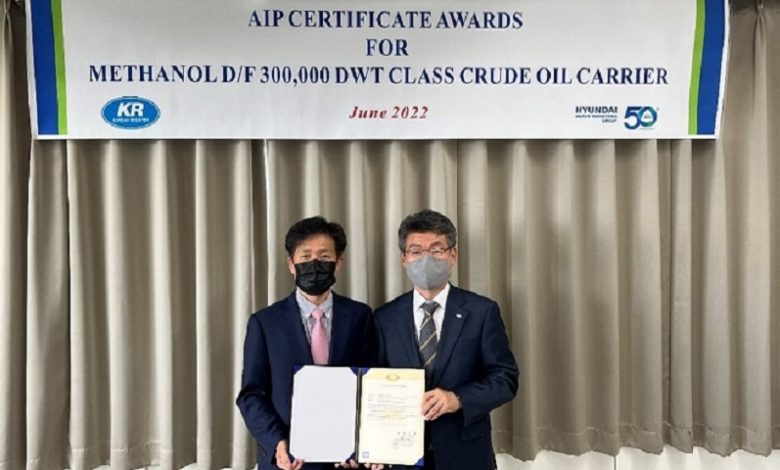
South Korean shipbuilder Hyundai Heavy Industries (HHI) has developed a methanol dual-fuel very large crude carrier (VLCC). The vessel’s design is based on the 300,000 dwt VLCC developed under a joint project between the class society Korean Register (KR) and HHI.
The ship is powered by methanol and marine gas oil and the HHI design includes two options in which the methanol fuel tank can be placed in either the open deck or the cargo area. Under the joint project, KR has verified the safety and suitability of the vessel’s design, ensuring it complies with domestic and international regulations.
The class society noted that interest in methanol as a ship propulsion fuel is growing on the back of the world’s leading shipping companies placing orders for vessels that use methanol as dual fuel. Hyundai Heavy has already booked orders from Danish liner giant Maersk to build twelve 16,000 teu container vessels that will enter the market in 2024 and 2025.
“Methanol is considered to possess high potential for commercialisation because it offers fewer technical difficulties than LNG and relatively less toxicity than ammonia. Methanol can be stored in a liquid state at room temperature, similar to bunker oil, making it easier to store and transport compared to LNG, hydrogen and ammonia, which turn into liquid state at –162°C, -253°C, and –34°C respectively,” KR said in a release.
Earlier this year in China, Cosco and Dalian Shipbuilding Industry Co (DSIC) unveiled a methanol-fuelled VLCC based on the latest generation of 310,000 dwt VLCCs designed and built by DSIC. The ship has been designed for two methanol fuel tanks with a total capacity of 10,000 cu m, which, according to the developers, can meet the fuel requirements of the ship’s main engine, auxiliary engine, and boiler for the entire voyage.
